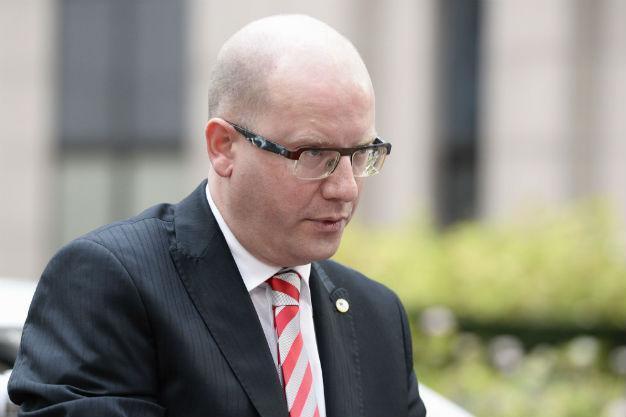Czechs call Central European summit on migration for Feb 15
PRAGUE

AFP photo
The Visegrad group of central European countries will hold a summit on Feb. 15 to discuss the migration crisis, Czech Prime Minister Bohuslav Sobotka tweeted on Jan. 26, Reuters reported.
The meeting of Czech, Polish, Hungarian and Slovak prime ministers will take place ahead of a Feb. 18-19 summit of European Union leaders at which the crisis will be assessed.
The Visegrad group has called for stricter EU border protection and limits on an influx of migrants, and has protested against an EU quota system intended to redistribute asylum seekers from western Europe.
Meanwhile, Slovak Prime Minister Robert Fico said on Jan. 26 the European Union is committing a “ritual suicide” with its migration policy, urging the 28-member bloc to stop the inflow of migrants fast.
“I feel that we in the EU are now committing ritual suicide and we’re just looking on,” the 51-year-old left-winger known for his anti-immigrant rhetoric told Czech newspaper Pravo.
Fico, whose party is expected to win a general election in March, said the EU should first of all stop the influx of “illegal migrants.”
“If it takes until late 2016 or 2017 for Europe to set up its planned border and coastguard force, the EU will have killed itself,” Fico said, adding that Slovakia had 300 police officers ready to deploy at the external borders of the passport-free Schengen area.
“We often stew in our own juices, tackling quotas which are nonsense... and in the meantime several thousand migrants arrive in Europe every day,” the premier said.
Slovakia, a eurozone member of 5.4 million people, has filed a lawsuit against the EU-proposed quota system for distributing migrants across the continent, just like neighboring Hungary.
Fico said the system had turned out “a complete fiasco” and that thousands of migrants distributed according to quotas were impossible to integrate in Slovakia.
“If, based on temporary or permanent quotas, someone forces us to import 50,000 people with completely different habits and religions - and these are mostly young men - I can’t imagine how we could integrate them. We can’t,” he said.
“They would end up in a space with its own life and its own rules, and this is why I’m saying this idea is wrong and unfeasible.”
